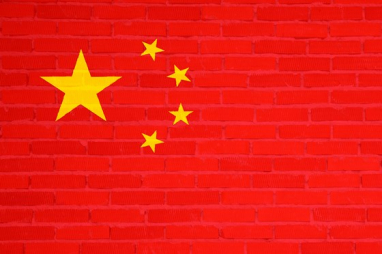- air jordan outlet legit reddit
- images of nike lebron 6 low safari blue , Ja Morant Nike Ja 1 Colorways + Release Dates , IetpShops
- 001 Air Jordan 1 Zoom Comfort League of Legends World Championship 2020 For Sale3 Retro Cap And Gow OG Voodoo DZ7292 , new year deals air jordan 13 low white metallic silverpure platinum - 200 Release Date - Zion Williamson x DD1453 - SBD
- Barron Trump’s Height Is Taller Than Melania, Donald & Many Teen Boys – Fonjep News
- Air jordan 6 rings bred black university red white yellow strike playoffs big kids - 001 Release Date - air jordan 1 retro first class flight white dynamic yellow black 2021 DN4904 - SBD
- air jordan 1 retro high og university blue 555088 134
- Travis Scott Air Jordan 1 High OG CD4487 100 Release Date Price
- eastbay restock large amount air jordans
- Air Jordan 1 Mid Bred 554724 074 2020 Release Date 4
- new air jordan 1 high og osb dian blue chill white cd0463 401
- Home
- News and analysis
- Info hubs
- Events
- Video
- Case Studies
- About us
- Magazine
- Advertising
Produced for the industry by the Association for Consultancy and Engineering
Comment
Opportunities looming for Chinese collaboration

Despite economic uncertainty and overcapacity in key sectors, investment from China remains a key opportunity and a challenge for UK infrastructure leaders, writes Nelson Ogunshakin.
After many years of supercharged growth, China is in an unpredictable economic state as industrial profits slow, debt rises, demand slackens, and overcapacity continues in many key sectors. With around 30% of development coming from China and the country wishing to take on risks associated with global infrastructure, industry leaders are faced with some thought-provoking questions on the impact that the collective Asian market could have on both funding for infrastructure as well as project preferences.
In December 2016, when I looked at some of the key challenges facing industry leaders, I identified the Chinese market as a key driver for business leaders in 2017.
Though many are currently focused on achieving political stability in the UK in the aftermath of the Brexit vote and the uncertain outcome of the UK general election, it is incumbent on business leaders to prepare for the immediate or near future impact of changes in the Chinese market. Ultimately, it is up to industry leaders to ensure that business success is assured, no matter what the fluctuations to the market might be.
For leaders, it will be essential to establish a sustainable business model that embraces the opportunities in the Chinese market as part of the collective Asian market as well as the UK market. This becomes an additionally challenging prospect when we do not know how those investors or companies currently operating in the Chinese market will be entering the UK marketplace.
"It will be essential for business leaders to establish a sustainable business model that embraces the opportunities in the Chinese market as part of the collective Asian market as well as the UK market."
Though growth is still seen as unusual in the Asian market when compared to the west, the relevant investment flows remain high, with China in particular continuing to rank amongst the strongest markets in the world for annual GDP growth.
Some key UK infrastructure projects depend on Chinese investment with Hinkley Point C, Thames Tideway, Heathrow and High Speed 2 all being partially or substantially financed with Chinese money. While the investment sector is clearly keen to increase collaborations with those in the Chinese market to co-finance major projects, there is also an increasing concentration on social and economic infrastructure in major cities such as Manchester or Birmingham. However, such forms of collaboration have not yet fully reached or entered the supply chain.
Will the Chinese market enter and engage within the UK market through the African model or will the entry model be entirely different due to the different legislative and regulatory environment?
While time can only tell, one can look to recent acquisitions by Japanese companies for clues as to how their Chinese counterparts from the collective Asian market will choose to enter the UK market through the supply chain. Through Japanese companies acquiring UK consultancies, they have acquired delivery capability and an access point into new market opportunities.
Ultimately, money and investment will drive the collaboration and the entry strategy for Chinese companies. It will remain to be seen whether this will take the form of strategic collaborations or if they will look to acquire consultants, contractors or technology.
In the UK we have the advantage of understanding the European legislative, regulatory and procurement processes, which can be packaged as an advantageous benefit for future international collaboration. Delivering growth for profitability in a shifting business landscape means that CEOs and business leaders must be fully aware of the opportunities and challenges faced from international investment.
"Delivering growth for profitability in a shifting business landscape means that CEOs and business leaders must be fully aware of the opportunities and challenges faced from international investment."
Given the number of recent, large scale acquisitions in the UK marketplace, now is the time for leaders to discuss and explore forms of strategic collaboration with the Chinese market. The European CEO conference, taking place in November presents leaders with a unique Chatham House opportunity to discuss collaboration with other markets and other issues related to how companies in the built and natural environment navigate the various forms of global uncertainty ahead.
If we are to deliver growth for profitability in a shifting business landscape then we need to devise a strategy to address how we work in collaboration with not just the Chinese market, but across the world.
Dr Nelson Ogunshakin OBE is the chief executive of the Association of Consultancy and Engineering.

